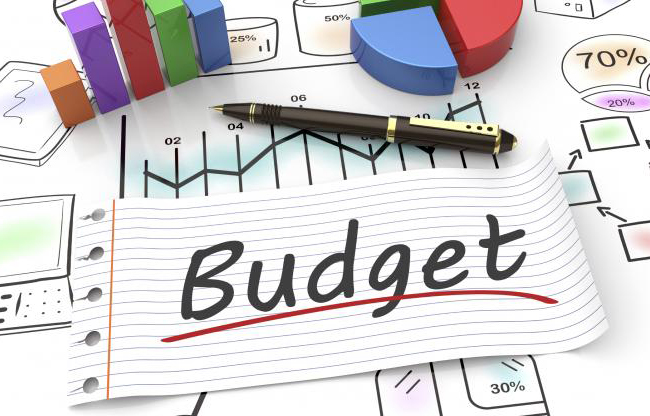LAHORE : The country’s leading tax consultants and economic experts on Saturday urged the government to reduce income tax rate by 50 percent in the case of persons earning up to Rs3 million but should not give income tax relief to the rich in the upcoming federal budget.
Talking to Pakistan Today, leading tax consultant and an economic expert Huzaima Bukhari said that the federal and provincial budgets in the prevailing circumstances should concentrate on revival of the economy and not in traditional mode to worry about fiscal deficit etc. She added that the federal and provincial governments must provide maximum tax and other concessions to the public so that they spend the money as the lockdown will be gradually relaxed.
The tax consultant stated that more spending by the public alone could create the demand which at present is at its lowest ebb. The Federal Board of Revenue (FBR) must release refunds to all, even where tax was not due but withheld and no return is received, she said. Bukhari maintained that this data could be taken from Ehsaas as those adjudged eligible for cash were also mobile users and paying 12.5 percent advance income tax.
“FBR must act as a stimulant for revival. If it fails to do so, there will be more shortfall in collection as revenues come from transactions and not stagnation,” she added. However, sales tax rate should be reduced across the board by 50 percent both on goods and services. She maintained that for this, both federal and provincial governments need to take joint decisions under the National Economic Council in terms of Article 56(2) of the Constitution.
Bukhari stressed that before the finalisation of federal and provincial budgets, Prime Minister Imran Khan should call the meeting of National Economic Council as well as that of National Development Council (NDC), established by him on June18, 2019 (its mandate includes approving long-term planning in relation to national and regional connectivity), to tackle a challenge that requires federalised approach and not centralised or provincial approach. She recommended that all oppressive taxes should be withdrawn by the federal and provincial governments due to extreme hardships faced by the weaker segments of society.
For example, about 95 million unique mobile users (as per website of Pakistan Telecommunication Authority (PTA) total cellular subscribers as on December 31, 2019 were 165 million, but many have multiple and/or dormant SIMs), after vacation of stay by Supreme Court on April 24, 2019 in Human Rights Case (HRC No. 18877/2018), are paying 12.5 percent advance income tax, the tax consultant shared. She maintained that the detail of indirect taxes paid by them is 19.5 percent sales tax on services to all the four provinces, for users in Islamabad Capital Territory, 17 percent federal excise duty, plus 10 percent service/maintenance charges.
Bukhari added that millions of these mobile users, some of whom are even declared eligible for Ehsaas Emergency Cash Programme, are brazenly subjected to extortion by the federal government in the name of advance income tax and by provinces charging sales tax as high 19.5 percent. “These taxes should be waived in the case of those having no taxable income using the database of Ehsaas,” she said.
According to ‘Impact of Covid-19 on Small and Medium Enterprises (SMEs)’, an online survey by Small and Medium Enterprises Development Authority (SMEDA), conducted through April 3, 2020 until April 14, 2020, “Annual Sales Turnover of respondents indicates that majority (81.1 percent) of the respondents were from small sized businesses with up to 30 million annual sales turnover.
She shared that 32.8 percent of respondents indicated to have less than Rs 1 million annual sales turnover. They, while immensely suffering due to lockdown, are still compelled to pay advance income tax on mobile and commercial electricity use under sections 235 and section 236 of the Income Tax Ordinance, 2001 and those in the service sector, by exorbitant sales tax on services. She opined that these taxes should be waived for all those having income below taxable limit.
Meanwhile, economist Dr Farida Faisal said that in the throes of COVID-19 pandemic, budget 2021 will most likely be based on highly optimistic Gross Domestic Product (GDP) growth rate of more than two percent, justified by incentives being given to industry like lowering of policy rate etc. She maintained that the budget deficit would probably be inflated to around nine percent to factor in corona-related revenue losses to the tune of more than Rs 1 trillion and emergency relief measures for the poor and unemployed of around Rs 700 billion.
Dr Faisal shared that on the bright side due to debt rescheduling and easing of macroeconomic conditions by International Monetary Fund, heavy taxation will be postponed. “In fact budget outlays to jumpstart sectors such as construction and agriculture are very much on the cards,” the economist opined.





Income Tax Exemption on Gratuity
Tax Exemption on Gratuity. Gratuity is a benefit given by the employer to employees. A recently approved amendment by the Centre has increased the maximum limit of gratuity. Now it is tax exempt up to Rs 20 lakh from the previous ceiling of Rs 10 lakh, which comes Section 10(10) of Income the Income Tax Act.Nov 27, 2019
Income Tax Exemption on Gratuity
Under Income Tax Act
Updated on Nov 27, 2019 – 05:37:40 PM
I am Architect working with a private contracting company since 7-years.I am paying 16996/- monthly tax. My gratuity calculation is Rs.18,50,000/- If i have to pay tax on my gratuity?